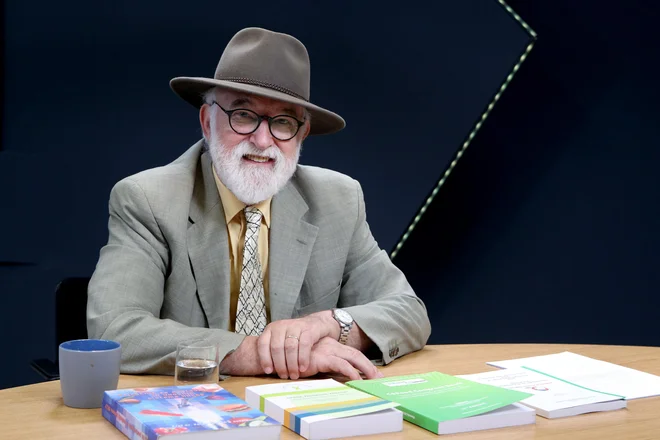Industry and nutrition gurus take us thirsty over water

Pesticides in baby food. Dubious imported meat. Misleading labels on the packaging. In times when food affairs are filling titles, safe food seems to be gone. Who else can we trust – and how much time, energy and money are we willing to invest in securing it?
In the new episode of the podcast On the edge We hosted Professor dr. Peter Rasporone of the largest food safety experts in our country. A scientist who has been pointing out for decades that the food industry is not only a matter of taste but also health, ethics and trust, warns: « Food is under strict control today than ever, but that is why we have more contamination. »
Asked if food is really more contaminated today than it used to be, Raspor responds with caution: “The ways of production have changed over the millennia and brought new risks. Today we detect them sooner – mainly because we have scientific tools that allow measurement at incredibly low concentrations. ”According to him, we are talking today about the remaining quantities of substances present in foods in a ratio of one billion. « One hundred years ago, we wouldn’t even notice it, » he says.
However, because of the more sensitive methods, we find that some of the decomposition products of pesticides may be more harmful than the initial substance. In this sense – to detect more contamination – food is « more dangerous ». But at the same time, this also means that we are safer, since the institutions of this substance now know how to recognize and act.
Interesting is the Raspor’s view that large industrial manufacturers are generally safer than smaller ones, mainly because they are better controlled and professionally trained. “We have agricultural schools, faculties, knowledge. The problem is gardeners who deal with the use of protective equipment themselves and often greatly exceed the permissible concentrations – simply because they misunderstand the quantities, « he warns.
The Slovenian food control system, including the Food Safety Administration, Veterinary and Plant Protection, is doing well. They take samples regularly and analyze pesticide residues. However, he advises consumers to rely as much as possible on local food with a well -known origin.
“Homemade” is not always better
But what’s home? That pot of strawberries from the market? Unmarked oil without origin? « If the producer says, ‘I eat what I’m selling,’ this is a good sign. However, if I would not put what it offers to others on my plate – then we have a problem, « Raspor said.
Some growers returning to these natural production reject all protective products – but this may have unwanted consequences. “Natural contaminants, such as molds and toxins, can be significantly more dangerous than pesticide residues, if not acted in a timely manner. Already our grandmothers knew that you do not give moldy food cows – today we know why. Mycotoxins are transferred to milk and can be very dangerous. «
The debate touches on even the most painful stories of the global food industry – from the marketing of milk powder in Africa to a melamine scandal in China. « When accountants and marketers are deciding what we put on a plate, the problem is arising, » says Raspor. In many cases, it was a conscious deception. « These were the annexes that happened because no one in the system predicted that someone could be so conscious. »
And that is why, according to Professor Raspor, food should also be an ethical product. “Those who create her should also have an ethical education. It’s not just about profit – it’s about human health. «
Influences are doing damage
Peter Raspor also points out that people often follow unverified and misleading claims spread by influencers without adequate knowledge. Raspor is particularly critical of book authors who uncritically transcribe information from the Internet, without understanding the scientific basis.
With regard to gluten, it emphasizes that healthy people do not need special additives in a balanced diet and that fear of gluten is often not justified, except for people with celiac disease. Nutritional problems should be solved with dietetics, not general avoidance of basic foods.
Finally, he expresses doubt that the rise of the number of cases of nutritional intolerance is really the result of the degeneration of the digestive tract of the entire population – formerly it is unclear diagnosed and industry’s response, which quickly creates an offer for demand.
It also points to the excessive consumption of concentrated foods (sugar, fat, alcohol) that has been eliminated by a person from the development of technology from the natural context. In doing so, he points out an example of energy drinks that are legal despite the harmfulness because they were « intelligently » presented to regulators.






